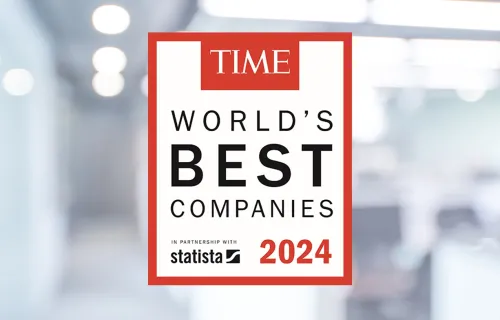Around the world, communities face extreme weather events that are more frequent and more ferocious than ever before. These catastrophes, and the associated loss and damage, severely impact human health and the financial well-being of the individuals, companies, and governments affected. To address these challenges, governments are looking to harness the power of data and apply emerging technologies as key enablers in the fight against climate change.
Making a difference
Below are several examples of where CGI is making a difference:
Delivering more precise climate data
In the United Kingdom, we are working with a global aerospace partner to define the Payload Data Ground System (PDGS) for the Traceable Underpinning Terrestrial and Helio-Studies (TRUTHS) satellite, which will help deliver improved confidence in Earth observation (EO) data gathered from space and the critical weather forecasts driven by this data.
Leveraging artificial intelligence (AI) to map and monitor the impact of wildfires
Better monitoring and analysis of burnt areas can help improve land management and decrease environmental and human costs. Working with the European Space Agency (ESA), we developed a new AI-enabled wildfire mapping service that combined recent advances in EO, AI and cloud computing to better identify the impact of wildfires.
Predicting floods with models powered by machine learning (ML) and AI
In the United States, CGI and the University of Louisiana at Lafayette (ULL) partnered on the machine learning-enabled Flood Forecasting Prototype project —a deep learning, data-driven flood forecasting system. Through a public-private partnership including CGI, ULL and the National Science Foundation Center for Visual and Decision Informatics, the consortium developed a prototype that integrates space-based systems, ground radar, field sensors and even social media data to aid in flood forecasting.
Protecting seagrass ecosystems aided by EO data
CGI partnered with Project Seagrass, a global charity devoted to seagrass conservation, to develop an open-source algorithm that helps locate, quantify and track seagrass meadows initially across the United Kingdom. CGI and Project Seagrass developed the algorithm to support academic and government plans for protecting vital seagrass ecosystems, which, in turn, help to mitigate climate change. They released the latest version of the open-source algorithm to enable community collaboration and continued development of the algorithm.
Public/private partnerships multiply effects
A key element of success in these examples is continued public/private partnership. Working together towards a common goal, governments, industry, and academia can each bring their best to solve our more daunting challenges. Informed by high-quality integrated data and advanced analytical models, governments can move swiftly to incorporate appropriate measures into climate adaptation and implementation plans, and design responses to reduce impacts when disasters do inevitably occur.
By partnering on initiatives that demonstrate environment responsibility and by harnessing the power of integrated data and advanced analytics, CGI is creating a safer and more sustainable world every day.





